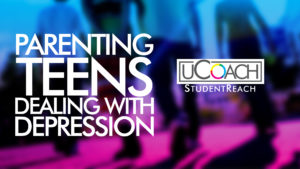MIND TRAPS: 3 LIES THAT KEEP YOUR TEEN FROM SUCCESS
Un-Distorting Your Teens Thinking: Part 2
We are gonna continue to talk about some of the thinking traps that teenagers deal with. Psychologists call them “cognitive distortions”.
These are habits of looking at a thing in a biased way that leads to self destructive behavior.
If you haven’t read our first article on cognitive distortions, you can read it here.
The four cognitive distortions we’re gonna deal with today involve negative self-talk that leads to poor self-talk that leads to poor self-image and self-destructive attitudes that become self-fulfilling prophecies.
In This Article:
1. CONTROL FALLACIES

This is when you see yourself as a helpless victim of some other person or even some outside force. When something unpleasant happens, you intrinsically feel like everything is working against you.
There are two types of feeling trapped; external (“I feel so stuck!”), where everything is directed at you, and internal (“It’s all my fault!”), where you are responsible for everything that happens to anyone else
- CONSEQUENCES: the consequences of this distortion are feeling powerless to change and decreased opportunities resulting from what others might rightly perceive as a lack of personal responsibility.
- EXAMPLE OF AN EXTERNAL CONTROL: “The reason why I got a bad grade was because the teacher didn’t give me enough time to study for the test.”
This is a victim mentality that will not help your teen succeed even if they are right.
- EXAMPLE OF AN INTERNAL CONTROL: “My best friend is depressed and it’s my fault because I wasn’t supportive enough.” This is born in pride rather than caring.
- HOW TO DEAL: Always commit to taking responsibility for your own actions. Differentiate between the external forces that influence your behavior, and the external forces that control your actions.
You have to realize that you can’t control anyone any more than they can control you. You can practice this thinking in your communication with others by speaking for “yourself” in productive ways.
“Teachers may not always prepare me for a test, but I can always prepare myself to be ready.” Or “My best friend is depressed, and I am worried about her. I will try to think of ways to support her.”
2. SHOULDS

People seem to have a list of rules about how others should and shouldn’t act. You become angry or disappointed when people break your rules, and feel guilty when you break your own.
You believe that simply knowing what you should do will be enough, but you’re constantly frustrated by the lack of forward movement.
- CONSEQUENCES: The consequences of this distortion are anger, guilt, frustration and resentment towards others and ones self.
- EXAMPLE 1: You think you should have done better on a test and you want to give up. You’re frustrated and thinking that if you were a smart person, it shouldn’t be this hard.
- EXAMPLE 2: You think you should exercise more, so you beat yourself up when you don’t do what you should do.
- HOW TO DEAL: Forget what you think should happen and focus on practical solutions. Let other people know what you would like from them and then let them decide what they will do.
Instead of thinking about what you should do, take steps to actually do it, with a solid plan of small steps. Motivation for who you should be is the “why” but focusing on the how you actually become who you want to be will produce results.
Failures are unavoidable. Don’t let them define you or stop you from moving forward. Failures are lessons for your future successes!
3. FILTERING

This is when you filter out all of the positive aspects of a situation and focus only on the negative aspects. You might pick out one unpleasant details and dwell on it overwhelmingly or exclusively.
Almost everything is spoiled or ruined for you because you focus on the negative disproportionately. You apply this pattern of thinking to others and to yourself.
- CONSEQUENCES: the consequences of this distortion are depressed mood, poor self-esteem, and unhealthy pessimism.
- EXAMPLE 1: You usually get A’s and B’s but you get a lower grade on a test and feel stupid or incompetent. You expect A’s and B’s, but one lower grade makes you feel inadequate and stupid.
- EXAMPLE 2: Your close friends at a birthday party are all nice to you and it’s a fun party, but then someone you don’t know very well is very rude to you.
The entire party is spoiled for you even though you had fun for most of it.
- HOW TO DEAL: It’s easy to focus on the negative, especially if you feel threatened in some way.
It’s a natural human instinct – it’s also something that sucks the awesome out of everything good and destroys your happiness, gratitude and self-esteem.
When you feel negative about something that is mostly positive, remind yourself of the facts and control your feelings.
Also Read: Dealing with Teen Depression [2021]
4. REFRAMING
Reframing is one of the most important tools for overcoming thinking traps, or cognitive distortions, because it attacks the problem at its heart, the false belief habit.
IT INVOLVES THREE STEPS:
-
LEARNING TO NOTICE THE DISTORTION:

If you can have a good honest coaching conversation with the teen in your life, you can help them identify patterns of cognitive distortion.
Having names for these patterns helps identify them.
For example, if your teenager has a problem controlling their anger, they frequently have the sense of “feeling trapped” by their own anger, frustration or other negative behavior.
They believe that the actions of others cause their behavior and that they cannot control their emotions.
Look for passive use of language that describes them as the victim like “he made me so mad…” or “I was late because I couldn’t sleep last night” and identify these as times when they feel trapped.
Encourage them to stop themselves midstream when they recognize these statements. It is still helpful for them to process life through the lens of “this is how I feel”.
-
EXAMINING THE EVIDENCE

It’s time to look at the facts and evaluate the hard truth. How do you do this? By using the “filtering” example.
When you engage in filtering, you give more weight to negative facts than the positive. Making a list of all the positive and negative aspects of an experience will help you see the truth of the situation.
In the example of the poor test results, looking at past tests will show that the perception is wrong.
In the example of the birthday party, where most people were kind, but one person wasn’t, a list of positive and negative people at the party will quickly defeat the distorted perception of the entire experience.
Help your teenager think through the facts while showing empathy for their feelings. You can validate that they have strong feelings, while helping them correct the biased perception causing those negative feelings.
-
BEING COMPASSIONATE TO YOURSELF

While they attempt to be kind to other people, teens often do not extend that same kindness to themselves. Teenagers tend to focus on their faults.
Let’s look at the “shoulds” example for this one. Instead of beating themselves up for what they should be able to do, encourage your teen to think of themselves as a friend in the same situation.
What would they say to that person who came up short? Would they verbally beat that person up, or use words of encouragement? Objective thinking is easier when you take a third person viewpoint.
5. BALANCING TRUTH AND EMPATHY

Even when we are trying to correct negative thinking patterns, we need to balance truth with empathy. If your teenager doesn’t think you care (even when you know you do), it’s unlikely they will listen to you.
Make sure they feel heard and that you ask questions that lead them to the conclusions they need to come to. Just telling them that they are believing lies—or worse, they are just “believing a cognitive distortion”—when they are upset about something probably won’t work.
Make sure you listen to them and show that you really care. Otherwise, your “help” will come across as a “lecture” –the dreaded description of a parent trying to help but not “getting it.”
My suggestion is that you address these issues when the teen isn’t in the middle of an emotional meltdown. Using other people as examples can also help them from being defensive.
But just being a listening ear isn’t being a parent or other adult of influence. They have friends who will listen, so you have to be an adult who helps change things. Don’t expect these ideas—which are very counterintuitive to people who are more emotionally than cognitively oriented—to land on open ears.
But keep trying. This is important.
Let me know in the comments below how recognizing these cognitive distortions have helped you!
About the Author: Jeff Devoll
Jeff Devoll, executive director of StudentReach, is an international speaker, trainer, facilitator and mentor to students and leaders.
Jeff has spoken to over 1,000,000 people from 40 states and 40 countries.
But Jeff is more than a speaker, he and his team have taken more than 8,000 volunteers on domestic and international “expeditions” to help schools and impoverished people around the world.
More than 3,000 students have been mentored through StudentReach’s mentoring and coaching programs, most of them highly at-risk students.








Leave a Reply
Want to join the discussion?Feel free to contribute!